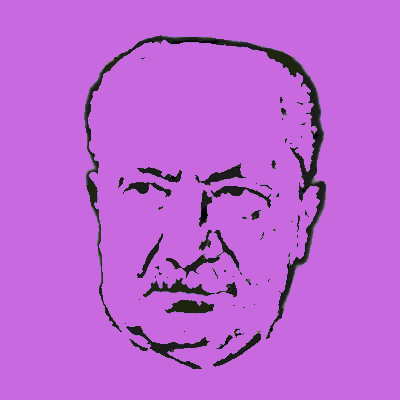Negatividad y acontecimiento. Una puesta en diálogo entre Adorno y Heidegger desde la hermenéutica de Gianni Vattimo
Contenido principal del artículo
Resumen
Este trabajo tiene la intención de ofrecer un esbozo de una interpretación más radical de la ontología heideggeriana que a la crítica destructiva de Adorno le pasaba inadvertida. El propósito de esta presentación es rescatar las aspiraciones de disolución del dominio y emancipación que alentaron los esfuerzos teóricos del autor de Negative Dialectik. Esos esfuerzos quedaron sin concretarse en el pensamiento de Adorno porque su crítica se movía en el horizonte de la metafísica. Para mostrarlo hemos elegido como hilo conductor la lectura que el filósofo italiano Gianni Vattimo propone en su última hermenéutica nihilista. Esta lectura que viene a sumarse a los intentos más actuales que tratan de desarrollar un “heideggerianismo de izquierda”. Su particularidad consiste en que ha vuelto a entablar un original diálogo con Nietzsche y la tradición hegelo- marxista para desplegar el potencial transformador y diferenciador que aún late en la filosofía del último Heidegger.
Descargas
Detalles del artículo

Esta obra está bajo una licencia internacional Creative Commons Atribución-NoComercial-SinDerivadas 4.0.
Los autores mantienen la Propiedad de los Derechos de Autor y Derechos de Reproducción.
Los autores/as pueden realizar otros acuerdos contractuales independientes y adicionales para la distribución no exclusiva de la versión del artículo publicado en esta revista (p. ej., incluirlo en un repositorio institucional o publicarlo en un libro) siempre que indiquen claramente que el trabajo se publicó por primera vez en esta revista.
Se permite y recomienda a los autores/as a publicar su trabajo en Internet (por ejemplo en páginas institucionales o personales) posterior al proceso de revisión y publicación, ya que puede conducir a intercambios productivos y a una mayor y más rápida difusión del trabajo publicado.
Citas
Adorno, T.W.: La actualidad de la filosofía, Trad. José Luis Arantegui Tamayo, Paidós, Barcelona, 1991.
Adorno, T.W.: “Para qué aún filosofía” en Crítica de la cultura y sociedad II, Obra completa. 10-2, Trad. Jorge Navarro Pérez, Madrid, Akal, 2009.
Benjamin, W.: “Sobre el concepto de historia” en Estética y Política, Trad. Julián Fava, Buenos Aires, Las cuarenta, 2009.
Buck-Morrs, S.: Origen de la dialéctica negativa, Siglo XXI, México, 1981
Friedman, G.: “Heidegger”, en La filosofía política de la escuela de Frankfurt, FCE, México, 1986: pp.74-81.
Giorgio, G.: “Il confronto con Adorno” en Il Pensiero di Gianni Vattimo.L´emancipazione
dalla metafísica tra dialettica ed ermeneutica, FrancoAngeli, Milan, 2006: pp. 150-180.
Goldman, L.: Lukács y Heidegger. Hacia una nueva filosofía, Amorrortu, Buenos Aires, 1974.
Janicaud, D.: Heidegger en France, Paris, A. Michel, 2001.
Kostas, A.: Marx y Heidegger. Introducción a un pensar futuro, Amorrortu, Buenos Aires, 1981.
Marchart, O.: El pensamiento político posfundacional, FCE, México, 2009
Nietzsche, F.: “Cómo el ‘mundo verdadero’ acabó convirtiéndose en una fábula” en
El Crepúsculo de los ídolos, Trad. A. Sánchez Pascual, Alianza, Madrid, 1979: pp. 51-52
Tafalla, M.: Theodor W. Adorno. Una filosofía de la memoria, Herder, Barcelona, 2003.
Sützl, W.: Emancipación y Violencia. El pacifismo estético de Gianni Vattimo, Icaria, Barcelona.
Vattimo, G.: “Heidegger y la Verwindung de la modernidad” en Más allá del pensamiento débil. Filosofía, Política y Religión, Alvarez (ed.), Ediciones Novel, Oviedo, 1996: pp. 92- 105.
Vattimo, G.: “Metafísica y Violencia” en Debilitando la filosofía. Ensayos en honor a Gianni Vattimo, Anthropos-Universidad Autónoma Metropolitana, Barcelona, 2009: pp. 451-475.
Vattimo, G.: Ecce Comu, Paidós, Buenos Aires, 2009.
Vattimo, G.: Adiós a la verdad, Gedisa, Barcelona, 2010.
Welmer, A.: Sobre la dialéctica de la modernidad y posmodernidad. La crítica de la razón después de Adorno, Visor, Madrid, 1993.

